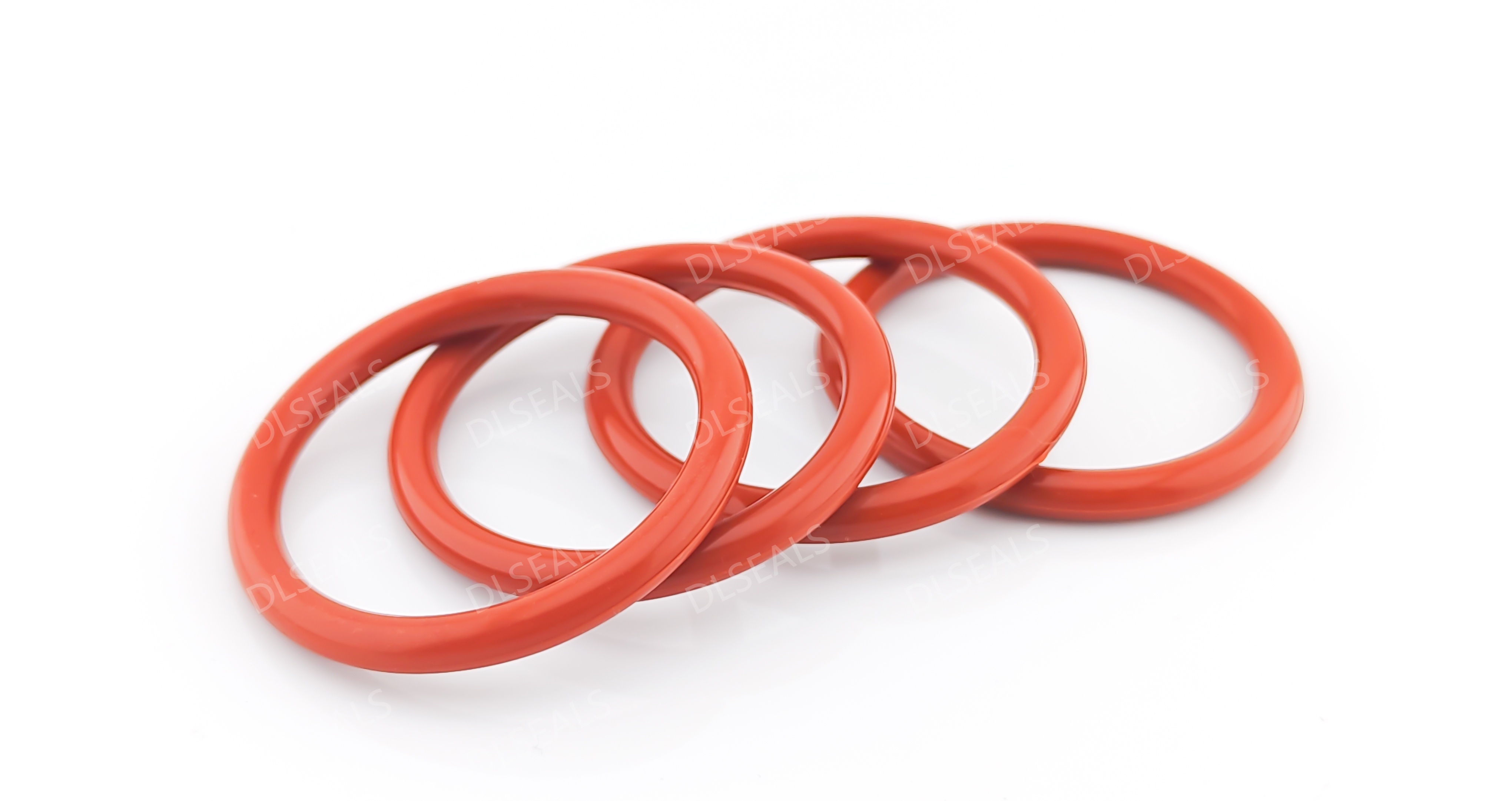News
A2024-09-26

In modern industry, seals are key components and are widely used in machinery, automobiles, electronics and other fields. Choosing the right sealing material can not only improve the performance of the equipment, but also extend its service life. Among them, nitrile rubber and silicone seals are favored because of their unique physical and chemical properties. This article will explore the characteristics, advantages and application scenarios of these two sealing materials in depth to help you make the best choice in various engineering needs. Whether it is oil resistance, temperature resistance or cost-effectiveness, understanding these details will provide important support for your project.
1. Material composition
Nitrile rubber (NBR):
Mainly composed of acrylonitrile and butadiene copolymers, with different acrylonitrile contents, usually between 18%-50%. The higher the acrylonitrile content, the better the oil resistance, but the flexibility may be reduced.
Silicone (SI):
Mainly composed of siloxane chains (Si-O) and organic side chains (such as methyl, phenyl, etc.), with excellent thermal and chemical stability.
2. Physical and mechanical properties
Nitrile rubber:
Hardness: Usually in the range of 40-90 Shore A.
Tensile strength: up to 20 MPa, good wear resistance.
Elongation: up to 500% or more, with good elasticity and resilience.
Compression set: low, suitable for long-term compression applications.
Silicone:
Hardness: usually ranges from 30-80 Shore A.
Tensile strength: generally 5-10 MPa, excellent flexibility.
Elongation: usually between 200%-600%, suitable for a variety of shape seals.
Compression set: excellent, suitable for applications in high temperature or high pressure environments.
3. Chemical resistance
Nitrile rubber:
Excellent oil resistance, suitable for media such as petroleum, lubricants, fuels, etc.
Poor tolerance to water, acids, and alkalis, especially strong acids and alkalis.
Silicone:
Good chemical resistance, resistant to a variety of chemicals, but poor tolerance to oils.
Excellent performance in extreme environments, including high and low temperatures and humidity changes.
4. Temperature resistance
Nitrile rubber:
Working temperature range: about -30°C to +100°C, can withstand 120°C for a short time.
When this temperature is exceeded, the performance will decline rapidly, and problems such as aging and embrittlement will occur.
Silicone:
Working temperature range: usually -60°C to +200°C, some special formulas can reach +300°C.
Maintain good physical properties in high temperature environment and not easy to age.
5. Application areas
Nitrile rubber sealing ring:
Widely used in the automotive industry (such as oil seals, fuel system seals), hydraulic equipment (such as hydraulic cylinder seals), mechanical industry (such as pumps, compressor seals), etc.
Silicone sealing ring:
Mostly used in food and pharmaceutical industries (such as food processing equipment seals), household appliances (such as oven seals), electronic equipment (such as battery seals), etc., which require good sealing and high temperature resistance.
6. Cost and economy
Nitrile rubber: The production cost is relatively low, suitable for large-scale production and application.
Silicone: Due to its special properties and production process, it is more expensive and suitable for high-end applications with strict performance requirements.
7. Environmental adaptability
Nitrile rubber: performs well in oily and dusty environments, but is prone to failure at extreme temperatures.
Silicone: performs stably in changing environments and is suitable for outdoor and harsh conditions.
Conclusion
Whether to choose a nitrile rubber seal or a silicone seal should be considered comprehensively based on the specific application scenario, media type, operating temperature and cost budget. Nitrile rubber is more suitable for occasions with contact with oil; while silicone is a better choice for high temperature or special chemical media.
[DLSEALS kindly Reminder] Sealing issues? Turn to DLSEALS! As a sealing component manufacturer, we specialize in customizing sealing components, providing a full range of services from design, research and development, production, testing, and more. If you have more information you'd like to know, feel free to contact us directly. DLSEALS's product experts are dedicated to serving you!